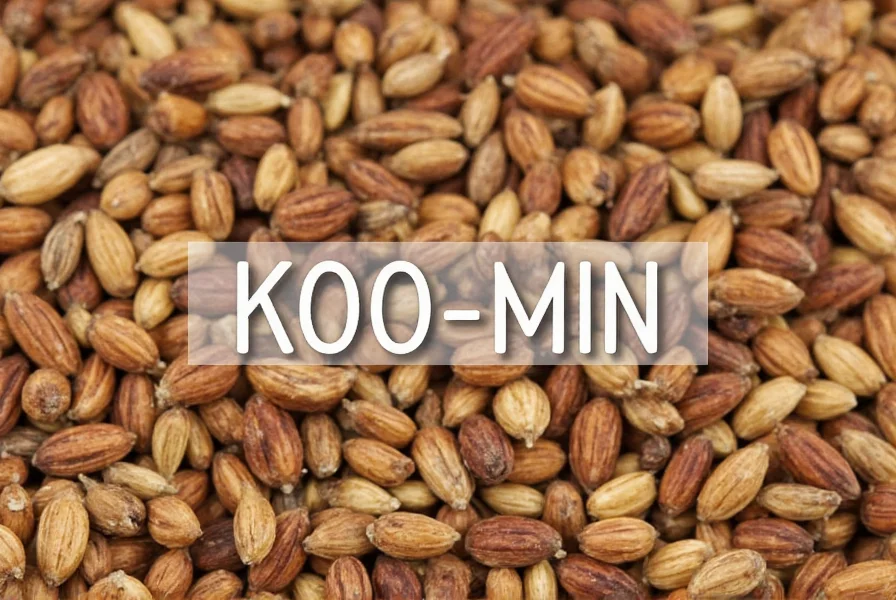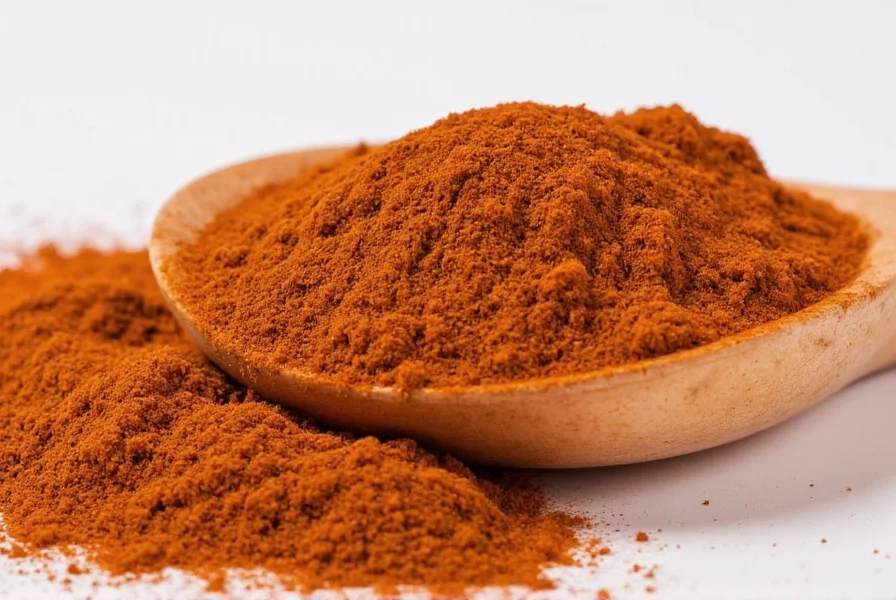Many home cooks and even experienced chefs stumble over the pronunciation of this essential spice. Whether you're ordering ingredients, discussing recipes, or watching cooking shows, knowing how to correctly say how to pronounce cumin spice prevents confusion and builds culinary confidence. This guide provides the definitive answer along with linguistic insights to help you master this commonly mispronounced word.
Breaking Down Cumin Pronunciation
The correct pronunciation follows a simple two-syllable pattern: KOO-min. Here's a detailed phonetic breakdown:
| Phonetic Spelling | Syllable Breakdown | Rhyme Reference |
|---|---|---|
| /ˈkuːmɪn/ (IPA) | KOO-min | Rhymes with "dozen" |
| KOO (stressed) | First syllable: long "oo" sound | Like "coo" in pigeon cooing |
| min (unstressed) | Second syllable: short "i" sound | Like "in" in "spin" |
Common Mispronunciations to Avoid
Several incorrect pronunciations have gained traction. Understanding these mistakes helps reinforce the correct version when learning how to say cumin spice:
- CUE-min - Adding a "y" sound that doesn't exist in the word
- CUH-min - Using a short "u" sound instead of the long "oo"
- COO-meen - Extending the second syllable with a long "ee" sound
- KUM-in - Dropping the long vowel sound in the first syllable
These variations often stem from misreading the spelling. The "u" in cumin represents a long "oo" sound, not the "uh" or "yoo" sounds it might suggest to English speakers.
Linguistic Background of Cumin
Understanding the word's origin clarifies why cumin is pronounced koo-min. The word entered English through Latin cuminum and Greek kyminon, ultimately tracing back to Arabic kommon. This linguistic journey explains the unexpected vowel sounds.
Unlike many English words that follow predictable spelling patterns, cumin retains pronunciation elements from its ancient roots. This historical context helps explain why the spelling doesn't match typical English pronunciation rules when figuring out the right way to pronounce cumin.

Practical Usage in Culinary Contexts
When discussing recipes or ingredients, proper pronunciation matters. Consider these examples of how chefs pronounce cumin in professional settings:
"For this curry base, we'll toast one tablespoon of KOO-min seeds before grinding them."
"The dish needs more depth—add a pinch of ground KOO-min along with the coriander."
Notice how the first syllable receives emphasis while the second syllable remains light. This stress pattern distinguishes it from similar-sounding words and prevents confusion with "cummerbund" or other "cu-" words.
Regional Pronunciation Variations
While KOO-min represents the standard pronunciation in American and British English, some regional variations exist:
- British English: Slightly more emphasis on the second syllable (koo-MIN)
- Australian English: Often shortened to "kum-in" in casual speech
- Indian English: Closer to the Hindi pronunciation "jeera" (jee-rah) when referring to the seed
For most English-speaking contexts, particularly when following cumin spice pronunciation guide standards, the two-syllable KOO-min remains the preferred version.
Tips for Remembering Correct Pronunciation
Struggling to remember how to pronounce cumin spice correctly? Try these memory aids:
- Rhyme technique: "I added KOO-min to my stew, now it tastes just dozen times better!"
- Visual association: Picture a pigeon cooing while standing on a pin
- Spelling hack: Cover the "c" and "n"—what remains is "umi," which sounds like "oo-min"
Why Pronunciation Matters in Culinary Settings
Correctly saying cumin spice word origin terms serves practical purposes beyond linguistic accuracy. In professional kitchens and cooking classes, precise communication prevents costly mistakes. Imagine a chef requesting "cumin" but being misunderstood as "cummerbund" or "caraway"—ingredients with distinctly different flavors.
When shopping for spices, clear pronunciation ensures you receive the correct product. Many grocery stores now offer both whole cumin seeds and ground cumin, and staff may differentiate based on how customers pronounce the word.
Frequently Asked Questions
Is cumin pronounced 'KOO-min' or 'CUH-min'?
The correct pronunciation is 'KOO-min' (rhymes with 'dozen'). 'CUH-min' is a common mispronunciation that drops the long 'oo' sound in the first syllable.
Why is cumin pronounced differently than it's spelled?
Cumin's pronunciation reflects its linguistic journey from Arabic 'kommon' through Latin and Greek. English adopted both the word and its unusual vowel sounds, which don't follow typical English spelling patterns.
Do chefs really care about cumin pronunciation?
Professional chefs value precise communication. While minor pronunciation errors won't cause kitchen disasters, using the correct 'KOO-min' helps avoid confusion with similar-sounding ingredients and demonstrates culinary knowledge.
Is there an audio pronunciation of cumin spice available?
While this text guide provides the phonetic spelling 'KOO-min', many dictionary websites and language apps offer audio clips demonstrating the correct pronunciation. Search for 'cumin pronunciation audio' to hear the proper two-syllable emphasis.
How do you pronounce cumin in Indian cooking contexts?
In Indian English contexts, many cooks refer to cumin seeds as 'jeera' (pronounced jee-rah). When using the English word 'cumin', they typically say 'KOO-min' following standard English pronunciation rules.











 浙公网安备
33010002000092号
浙公网安备
33010002000092号 浙B2-20120091-4
浙B2-20120091-4